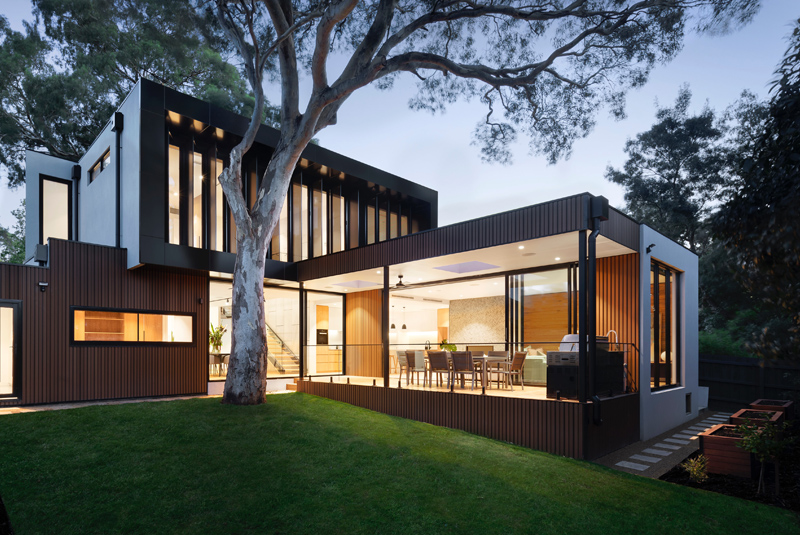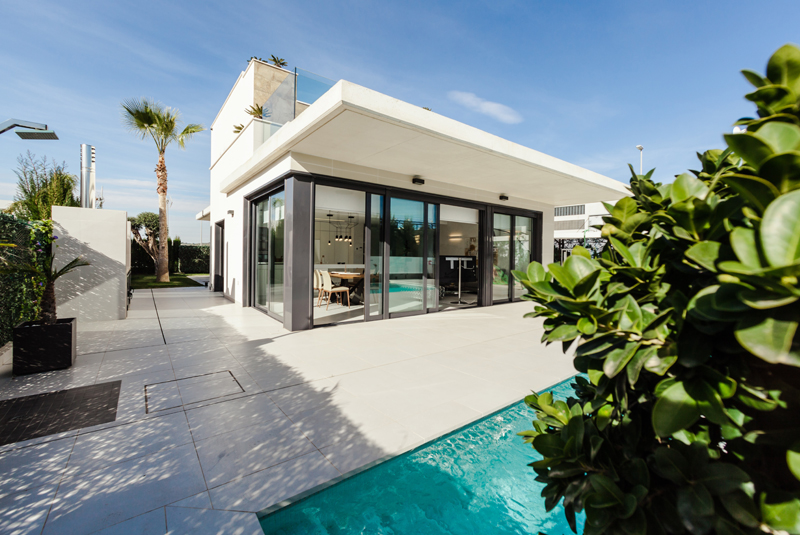November 23, 2022
Home Purchase in Ontario – Condo Versus House
Share this article:
A primary consideration when considering a home purchase here in the Greater Toronto Area and the rest of Ontario is – should I buy a condo or a house?
It’s a great question, so we thought we would take a look at all the factors you should consider for your home purchase.
Condominium and stand-alone house – they each have their relative advantages and disadvantages, or pros and cons. Here’s a look at what you need to consider when you are weighing “condo vs house” during your quest for buying a home.

Condo Versus House – the Main Difference
There is much to think about when you make what will likely be the most significant purchase – and investment – of your lifetime, which is buying a home. The primary decision you have to make is the choice between living in a condominium or living in a house. The main legal difference between the two is fairly basic:
- When you own a house, you are the owner of and are responsible for the structure(s) on the property, as well as the property itself.
- When you own a condo, you are the owner of the unit’s interior space, and potentially your parking space. While you have access to the rest of the property, subject to rules and regulations, you do not own anything but your unit.
House owners are therefore responsible for all the costs and maintenance of their property – this includes items such as property taxes, insurance costs, upkeep such as gardening, landscaping, snow removal, and everything else to do with the property. It’s not quite so with a condominium. The areas outside your particular unit are known as common areas – the hallways, property around the building, the lobby and entrance doors, garage areas, recreational areas, etc. – these are all co-owned by all members of the condo corporation you’ll belong to. Your condo fees go toward the upkeep of all these elements; a portion of your condo fees also go to a reserve fund, held for larger scale maintenance and replacement projects, such as elevators, the roof, interior decor, and the like.
In a way, the condo corporation you belong to when you buy a condominium takes the load off your mind when it comes to most forms of maintenance and upkeep of the property.
If you buy a house, you are your own manager – you must plan for and have money ready for upkeep and repairs to both the house and the land surrounding it.

Pros and Cons – the Advantages and Disadvantages of Buying a Condo
You can see that there are both pros and cons to buying a condo, in terms of the agreement you sign onto with your purchase. As mentioned, there is generally less to worry about in terms of maintenance related issues – your condo fees, and the rest of the residents’ cover the maintenance and upkeep of the common areas, and any required work is handled by the condo corporation. Here some of other advantages to condominiums as a home purchase:
There is usually a lot of supply on the market when you are looking to buy. When you take a look at real estate listings, you’ll see there is generally quite a selection of condos, in many neighbourhoods across the GTA. This isn’t always the case with houses; supply can go through cycles, alternating from a glut on the market, to scarcity of supply in the form of houses up for sale. So with condominiums, you generally get much choice – in the size of the unit, the amenities that come with it, and the area in which it’s located.

Your lifestyle can be a bit fancier in a condo. That is to say, there are amenities readily available in many condominiums you generally will not find in very many houses. These would include features such as a swimming pool, rooftop patio, workout room, recreation or party room facilities, and a parklike, professionally landscaped property. If you desire one or more of these amenities as part of your lifestyle, a condominium becomes an obvious choice of home purchase over a house, the vast majority of which do not include such nice-to-haves, except at the very highest end of the house market.
Now, for a couple of disadvantages to condominiums as a home purchase:
There are rules and regulations you must abide by. This is quite different from owning a stand-alone house, where you set the rules. In a condo, you have to agree to whatever restrictions come with your condo corp agreement. This could include items such as pets, use of common areas, etc.
There is generally less privacy. Your condo building might be relatively small at only a few stories, or it might be a gigantic high-rise; regardless, you will have interaction on a daily basis with many other occupants, from your closest neighbours, to the concierge, and those you encounter in the elevator or other common areas. If you’ve never been in a living situation such as this – for example, if you are transitioning from a house to condo – it may take some getting used to. Be prepared for this social element of condo living.

Pros and Cons – the Advantages and Disadvantages of Buying a House
When it comes to living in a house versus a condo, the reverse is frequently true to all that we’ve just highlighted. Here are some advantages to buying a house as a home purchase:
You’re pretty much free to do what you want with your home. As a house owner, there is no condo board to answer to. Any renovations and changes you want to make to the structure or the property are yours alone to pursue, subject to any municipal regulations and restrictions.
A house offers more privacy. You simply will not have the same interaction with other residents or the public generally when you live in a house; there are no common elements on your property – it’s 100% yours. Of course, when it comes to semi-detached homes and townhouses, there is somewhat less privacy.
Here’s a look at some of the inherent disadvantages to buying a house as a home purchase:
Supply can be an issue in the house market. Toronto and the GTA is a pretty big place, and yet, there are times – such as in the recent past – where there just aren’t a lot of houses on the market, compared to the numbers of people looking for one. This means that houses often don’t stay on the market very long – they’re quickly snapped up by eager buyers. In the worst case scenarios, bidding wars arise over houses for sale, which can drive selling prices up. A lack of supply can also mean purchasers may have to be less picky, and settle for something less than their “dream house”.

Most houses don’t come with fancy amenities. The vast majority of the time, you can forget about an indoor pool (or even outdoor pool), gymnasium, or party room when you buy a house. The more common amenities people seek out are location-influenced; they include proximity to schools, parks, shopping, and other more pedestrian features. “Bells and whistles” tend to be far less common and readily available in houses.

House Versus Condo as an Investment
We mentioned right off the bat that a home purchase is likely going to be the single biggest purchase – and investment – you make during your lifetime. It’s important to consider the differences between investing in a condominium and a stand-alone house.
We’ve also seen the relentless upward charge of real estate prices in the Greater Toronto Area, especially over the last several years. There has been little letup, even over the course of the pandemic, although rising interest rates may slow some of the momentum – potentially a good thing for those seeking a way into the market for the first time. Here are some differences between houses and condos, as investments over the long term:
- Condominiums are generally less expensive to buy than houses.
- The condo market tends to be much more volatile than the house market – price swings can go either way, and they can swing further, especially downward at times.
- Upkeep on a house is an ongoing expense, as is insurance; but the same thing holds true for condominiums, especially condo fees – they will add up to many tens of thousands of dollars over the years, offsetting the gain in a condo unit’s value.
- Houses come with the potential of rental income, should you choose to convert part of your house – such as a basement apartment or room to rent.
- There are fewer restrictions on what you can do with a house, in terms of renovations – additions, finished basements, and upgrades which can significantly increase its resale value.
- Houses have shown a remarkable upward trajectory in resale value over many decades; you pretty much can’t go wrong when you buy a house as an investment.

Real Estate Will Continue to be a Good Investment
As a summary, it is pretty safe to say that whether house or condo, getting into the real estate market is a good investment. Not only will your purchase be your place of residence – a place you can call home – it will also grow in value over time. Even in volatile economic times, buying a house or condo is a generally good bet.
When it comes to making the choice of condo versus house, you should weigh all the economic factors we’ve outlined, and then couple that with your personal preferences in terms of lifestyle and your priorities.
A couple of examples – if you have or plan to have young children and want a house, consider one that’s close to a school. If you’re not into condo amenities such as a swimming pool or fancy landscaped grounds, don’t spend money on one with those features.
We hope you’ve found this summary useful. If you’re ready to learn more about property buying, contact us today!
Get more homeowner tips
Subscribe to get more homeowner tips and advice delivered right to your inbox.
More Great Reads
- Ottawa to Allow 30-Year Amortization for First-Time Buyers’ Mortgages on New Homes
- Investing in Rental Properties as a Self-Employed Individual in Canada
- How to Get a Mortgage as a Self-Employed Lawyer in Toronto: A Comprehensive Guide
- A Guide for Self-Employed Contractors in Ontario Looking To Get A Mortgage
- Navigating Mortgage Approval as a Self-Employed Doctor in Toronto: The Alternative Lender Advantage



 Previous Page
Previous Page